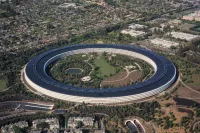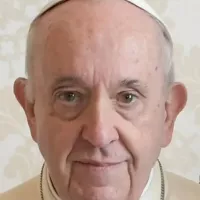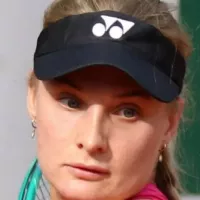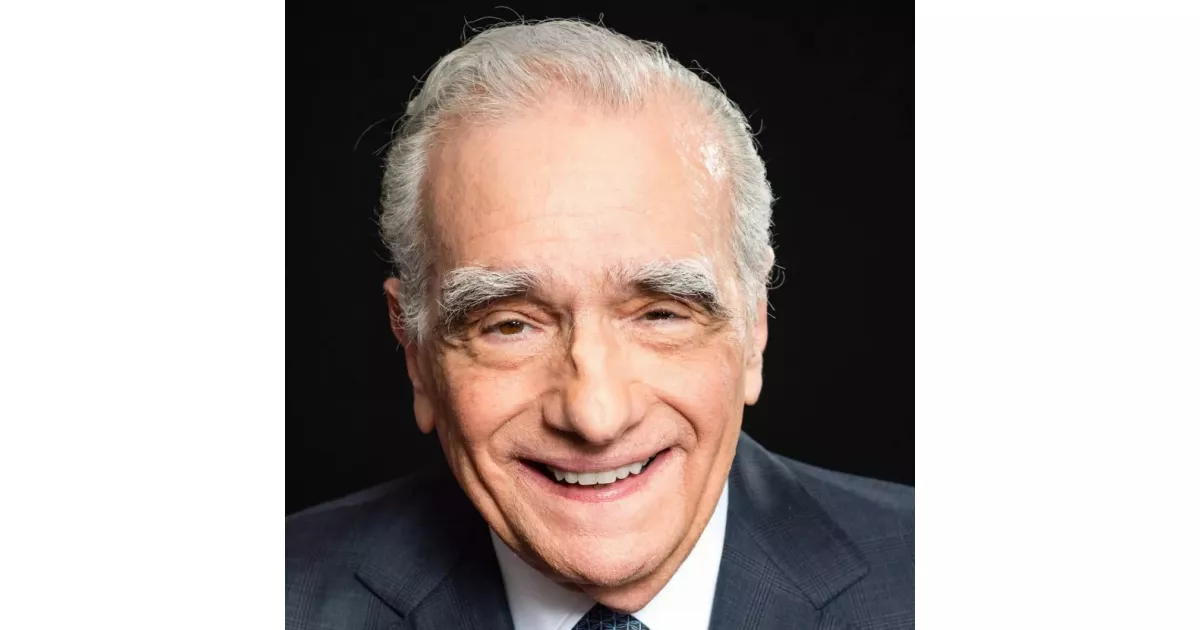Martin Scorsese is a highly acclaimed American filmmaker, a key figure in the New Hollywood era. His distinguished career is marked by numerous awards, including an Academy Award, BAFTA Awards, Emmy Awards, a Grammy Award, and Golden Globe Awards. He has received prestigious lifetime achievement honors from organizations like the AFI, Film Society of Lincoln Center, Kennedy Center, and BAFTA. Four of his films have been recognized for their cultural, historical, and aesthetic importance and inducted into the National Film Registry.
1916: Influence of A Portrait of the Artist as a Young Man
Towards the end of the 1950s, Scorsese began to approach literature, being marked by James Joyce's "A Portrait of the Artist as a Young Man" written in 1916.
1917: Sam Mendes praises Martin Scorsese
In his acceptance speech after winning the 2020 Golden Globe Award for Best Director for 1917, Sam Mendes praised Scorsese's contribution to cinema.
1937: Obsession with La Grande Illusion
In 1937, Scorsese became "obsessed" with Renoir's "La Grande Illusion" when it was rereleased.
November 17, 1942: Martin Scorsese Born
On November 17, 1942, Martin Charles Scorsese was born in the Flushing neighborhood of Queens, New York City.
1945: Inspiration from Rome, Open City
In 1945, Roberto Rossellini's "Rome, Open City" inspired Scorsese and influenced his view of his Sicilian roots.
1946: Inspiration from Bicycle Thieves
In 1946, Vittorio De Sica's "Bicycle Thieves" inspired Scorsese and influenced his view of his Sicilian roots.
1947: Influence of Black Narcissus
In 1947, Powell and Pressburger's "Black Narcissus" had a significant influence on Scorsese during his childhood, sparking his passion for cinema.
1948: Influence of The Red Shoes
In 1948, Powell and Pressburger's "The Red Shoes" had a significant influence on Scorsese during his childhood, sparking his passion for cinema.
1948: Influence of The Heart of the Matter
Towards the end of the 1950s, Scorsese began to approach literature, being marked by Graham Greene's "The Heart of the Matter" written in 1948.
1951: Rental of The Tales of Hoffmann
As a teenager in the Bronx, Scorsese frequently rented Powell and Pressburger's "The Tales of Hoffmann" from a local store in 1951, shaping his early cinematic experiences.
1951: Influence of The River
In 1951, Scorsese saw Jean Renoir's "The River", which fascinated him with its depiction of India.
1952: Influence of The Quiet Man
In 1952, Scorsese was influenced by John Ford's "The Quiet Man".
1955: Release of The Night of the Hunter
In 1955, Charles Laughton's 'The Night of the Hunter' was released. This movie heavily influenced Scorsese's remake of Cape Fear.
1955: Publication of The Last Temptation of Christ
In 1955, Nikos Kazantzakis's novel, The Last Temptation of Christ, was published. This novel later became the basis for Martin Scorsese's film of the same name.
1956: Inspiration from John Ford's 'The Searchers'
In 1956, John Ford's film 'The Searchers' was released. It served as one of the influences for Paul Schrader, the writer of Taxi Driver, which was later filmed by Martin Scorsese.
1956: Influence of The Searchers
In 1956, Scorsese was influenced by John Ford's "The Searchers".
1958: Response to Vertigo
In 1958, Scorsese responded "very strongly" to Alfred Hitchcock's "Vertigo".
1959: Inspiration from Robert Bresson's 'Pickpocket'
In 1959, Robert Bresson's film 'Pickpocket' was released. It served as one of the influences for Paul Schrader, the writer of Taxi Driver, which was later filmed by Martin Scorsese.
1960: Graduation from High School
In 1960, Scorsese graduated from the all-boys Cardinal Hayes High School in the Bronx.
1961: Release of The Hustler
In 1961, Robert Rossen's film The Hustler was released. This movie was later followed by a sequel, 'The Color of Money' directed by Martin Scorsese.
1961: Influence from West Side Story
In 1961, West Side Story was released. This movie influenced the direction and choreography in Martin Scorsese's short film 'Bad'.
1962: Original Release of Cape Fear
In 1962, the original movie Cape Fear was released. This was later remade by Martin Scorsese.
1963: What's a Nice Girl Like You Doing in a Place Like This? Release
In 1963, Scorsese made the short film "What's a Nice Girl like You Doing in a Place like This?" while attending the Tisch School of the Arts.
1964: Bachelor's Degree in English
In 1964, Scorsese earned a bachelor's degree in English from New York University's Washington Square College.
1964: It's Not Just You, Murray! Release
In 1964, Scorsese made the short film "It's Not Just You, Murray!" while attending the Tisch School of the Arts.
1967: Directorial Debut
In 1967, Scorsese made his directorial debut with "Who's That Knocking at My Door", which was accepted into the Chicago Film Festival.
1967: Who's That Knocking at My Door Release
In 1967, Scorsese made his first feature-length film, "Who's That Knocking at My Door", with Harvey Keitel and Thelma Schoonmaker, marking the beginning of long-term collaborations.
1967: The Big Shave Release
In 1967, Scorsese released his darkly comic short film "The Big Shave", also known as "Viet '67", an indictment of America's involvement in Vietnam.
1968: Master of Arts from NYU
In 1968, Scorsese earned his Master of Arts from NYU's School of Education.
1970: Assistant Director on Woodstock
During 1970, Scorsese worked as the assistant director and one of the editors on Michael Wadleigh's documentary "Woodstock".
1970: Asked to make a sequel to Bloody Mama
In 1970, Roger Corman asked Scorsese to make a sequel to "Bloody Mama".
1972: Boxcar Bertha Release
In 1972, Scorsese directed "Boxcar Bertha" after being asked by Roger Corman to make a sequel to "Bloody Mama".
1973: Mean Streets Release
In 1973, Scorsese's film "Mean Streets" was released, showcasing his trademark style with its extensive use of slow motion, freeze frames, voice-over narration, graphic depictions of extreme violence, and liberal use of profanity.
1974: Directing Alice Doesn't Live Here Anymore
In 1974, Ellen Burstyn chose Scorsese to direct her in "Alice Doesn't Live Here Anymore", for which she won an Academy Award for Best Actress.
1975: Retrospective at the Edinburgh International Film Festival
In 1975, Lynda Myles organized a retrospective of Martin Scorsese's work at the Edinburgh International Film Festival.
1976: Release of Taxi Driver
In 1976, Scorsese released Taxi Driver, a film about a Vietnam veteran who becomes a vigilante in New York City. The film, starring Robert De Niro and Jodie Foster, was critically acclaimed and established Scorsese as a prominent filmmaker. Cinematographer Michael Chapman was also recognized for his style in this movie. The film was controversial due to its violent content and Foster's role.
1976: Taxi Driver Wins Palme d'Or
In 1976, Scorsese won the Palme d'Or at Cannes with the film "Taxi Driver", which starred Robert De Niro as a disturbed Vietnam veteran.
1976: The Last Waltz Concert
On Thanksgiving Day in 1976, The Band held their final concert at the Winterland Ballroom in San Francisco. Martin Scorsese documented this concert in a film called 'The Last Waltz'.
1977: Directing The Act on Broadway
In 1977, Martin Scorsese directed the Broadway musical 'The Act,' starring Liza Minnelli. This project followed the disappointing reception of New York, New York, a movie he also directed.
1978: The Last Waltz Release
In 1978, Scorsese directed the rock documentary "The Last Waltz".
1978: Release of The Last Waltz and American Boy
In 1978, Scorsese released 'The Last Waltz,' a documentary of The Band's final concert. Also in 1978, he released another documentary, 'American Boy,' which focused on Steven Prince.
1982: Release of The King of Comedy
In 1982, Scorsese's fifth collaboration with De Niro, The King of Comedy, was released. The film is a satire about media and celebrity, featuring a loner who becomes famous through kidnapping. Despite its initial box office failure, it has gained critical acclaim over the years.
1983: Beginning work on The Last Temptation of Christ
In 1983, Scorsese began work on The Last Temptation of Christ, based on the novel by Nikos Kazantzakis. Paramount Pictures initially backed the project but later withdrew due to pressure from religious groups.
1983: Cameo appearance in Anna Pavlova
In 1983, Scorsese made a brief cameo appearance in Anna Pavlova, also known as A Woman for All Time, a film originally intended to be directed by Michael Powell. This led to a more significant acting role in Bertrand Tavernier's jazz film Round Midnight.
1985: After Hours Release
In 1985, Scorsese directed "After Hours".
1985: Release of After Hours, Best Director Award at Cannes
In 1985, Scorsese released After Hours and won a Best Director Award at Cannes. It represents a return to a more pared-down film-making style, filmed on a low budget in SoHo.
December 1986: Filming of "Bad" short film
In November and December 1986, Scorsese directed the 18-minute short film Bad, featuring Michael Jackson and Wesley Snipes, at the Hoyt–Schermerhorn Streets station in Brooklyn.
1986: Release of The Color of Money
In 1986, Scorsese directed The Color of Money, a sequel to The Hustler, starring Paul Newman and Tom Cruise. It marked Scorsese's move into mainstream filmmaking.
1987: Michael Jackson's music video "Bad"
In 1987, Scorsese directed the Michael Jackson music video "Bad".
1988: The Last Temptation of Christ Release
In 1988, Scorsese directed "The Last Temptation of Christ".
1988: Release of The Last Temptation of Christ and Controversy
In 1988, The Last Temptation of Christ was released, causing widespread controversy and protests due to its depiction of Christ. The film, however, also marked Scorsese's return to personal filmmaking.
1989: Directing "Life Lessons" segment in New York Stories
In 1989, Scorsese directed "Life Lessons", one of three segments in the anthology film New York Stories. The film received mixed reviews, with Scorsese's short being praised as successful.
1990: Acting role as Vincent van Gogh in Dreams
In 1990, Scorsese acted in a small role as Vincent van Gogh in the film Dreams by Japanese director Akira Kurosawa.
1990: The Film Foundation Founded
In 1990, Scorsese founded The Film Foundation, a nonprofit organization dedicated to film preservation and restoration.
1990: Release of Goodfellas
In 1990, Scorsese released Goodfellas, a gangster epic considered a return to directorial form and his most confident film since Raging Bull. The film received critical acclaim and numerous awards, enhancing Scorsese's reputation.
1990: Release of Made in Milan short documentary
In 1990, Scorsese released his only short-form documentary, Made in Milan, about fashion designer Giorgio Armani.
1991: Golden Plate Award of the American Academy of Achievement
In 1991, Martin Scorsese received the Golden Plate Award of the American Academy of Achievement.
1993: The Age of Innocence Release
In 1993, Scorsese directed "The Age of Innocence".
1993: Release of The Age of Innocence
In 1993, Scorsese released The Age of Innocence, an adaptation of the Edith Wharton novel set in late-19th century New York high society. The film, although critically acclaimed, was a box office bomb.
1994: Formation of De Fina-Cappa production company
In 1994, Scorsese and producer Barbara De Fina formed the production company De Fina-Cappa. Additionally, Scorsese expanded his role as a film producer in the early 1990s, producing a variety of films.
1994: Cameo appearance in Quiz Show
In 1994, Scorsese made a cameo appearance in the Robert Redford film Quiz Show, delivering the line about the audience not tuning in for intellectual ability but to watch the money.
1995: American Movies Documentary
In 1995, Scorsese explored film history in the documentary "A Personal Journey with Martin Scorsese Through American Movies".
1997: AFI Life Achievement Award
In 1997, Martin Scorsese received the AFI Life Achievement Award.
1997: Kundun Release
In 1997, Scorsese directed "Kundun".
1997: AFI ranks Raging Bull as 24th greatest American film
In 1997, the American Film Institute ranked Raging Bull as the twenty-fourth greatest American film of all time on their AFI's 100 Years ... 100 Movies list.
1998: American Film Institute's list of the greatest American movies
In 1998, the American Film Institute placed three Scorsese films on their list of the greatest American movies: Raging Bull at No. 24, Taxi Driver at No. 47, and Goodfellas at No. 94.
1999: My Voyage to Italy Release
In 1999, Scorsese released the documentary "My Voyage to Italy", exploring film history.
2001: American Film Institute's list of the most "heart-pounding movies"
In 2001, the American Film Institute placed two Scorsese films on their list of the most "heart-pounding movies" in American cinema: Taxi Driver at No. 22 and Raging Bull at No. 51.
2002: Gangs of New York Release
In 2002, Scorsese directed Leonardo DiCaprio in "Gangs of New York".
2004: Earlier Commercial Success with The Aviator
Until 2004, when The Aviator was released, Cape Fear was Scorsese's most commercially successful release.
January 5, 2005: French Legion of Honour
On January 5, 2005, Martin Scorsese was awarded the French Legion of Honour in Paris, France, in recognition of his contribution to cinema.
2005: No Direction Home Release
In 2005, Scorsese directed the rock documentary "No Direction Home".
February 8, 2006: Grammy Award for Best Long Form Music Video
On February 8, 2006, Martin Scorsese won the Grammy Award for Best Long Form Music Video for No Direction Home at the 48th Annual Grammy Awards.
2006: Commercial Success with The Departed
In 2006, 'The Departed' became Scorsese's most commercially successful release.
August 2007: Second-greatest director of all time
In August 2007, Martin Scorsese was named the second-greatest director of all time in a poll by Total Film magazine.
September 11, 2007: Kennedy Center Honoree
On September 11, 2007, Martin Scorsese was named as one of the honorees for the year by the Kennedy Center Honors committee for career excellence and cultural influence.
October 22, 2007: Scorsese to reunite with DiCaprio for Shutter Island
On October 22, 2007, Daily Variety reported that Martin Scorsese would reunite with Leonardo DiCaprio for a fourth time in the film Shutter Island.
December 2007: Casting of Shutter Island
In December 2007, Mark Ruffalo, Max von Sydow, Ben Kingsley, and Michelle Williams joined the cast of Shutter Island, marking the first time these actors had worked with Martin Scorsese.
2007: World Cinema Foundation Founded
In 2007, Scorsese founded the World Cinema Foundation, a nonprofit organization dedicated to film preservation and restoration.
2007: AFI Ranks Goodfellas
In 2007, the American Film Institute moved Goodfellas up to No. 92 on the AFI's 100 Years... 100 Movies list (10th Anniversary Edition).
2007: AFI ranks Raging Bull as 4th greatest American film
In 2007, the American Film Institute ranked Raging Bull as the fourth greatest American film on their AFI's 100 Years ... 100 Movies (10th Anniversary Edition) list.
June 17, 2008: AFI's 10 Top 10 list
On June 17, 2008, the American Film Institute placed two of Scorsese's films on the AFI's 10 Top 10 list: Raging Bull at number one for the Sports genre and Goodfellas at number two for the Gangster genre.
2008: Election to the American Philosophical Society
In 2008, Martin Scorsese was elected to the American Philosophical Society.
2008: Shine a Light Release
In 2008, Scorsese directed the rock documentary "Shine a Light".
January 17, 2010: Golden Globe Cecil B. DeMille Award
On January 17, 2010, at the 67th Golden Globe Awards, Martin Scorsese received the Golden Globe Cecil B. DeMille Award.
February 19, 2010: Release of Shutter Island
On February 19, 2010, the film Shutter Island, directed by Martin Scorsese, was released.
May 20, 2010: Shutter Island becomes Scorsese's highest-grossing film
On May 20, 2010, Shutter Island became Martin Scorsese's highest-grossing film to date.
August 25, 2010: Bleu de Chanel commercial debut
On August 25, 2010, Martin Scorsese's television commercial for Chanel's Bleu de Chanel, starring Gaspard Ulliel, debuted online.
September 18, 2011: Primetime Emmy Award for Outstanding Directing for a Drama Series
On September 18, 2011, at the 63rd Primetime Emmy Awards, Martin Scorsese won the Primetime Emmy Award for Outstanding Directing for a Drama Series for his work on the series premiere of Boardwalk Empire.
November 23, 2011: Release of Hugo
On November 23, 2011, Hugo, Martin Scorsese's first 3D film, was released in the United States.
2011: Scorsese wins Primetime Emmy Award for Boardwalk Empire Pilot
In 2011, Martin Scorsese won the Primetime Emmy Award for Outstanding Directing for directing the pilot of Boardwalk Empire.
2011: Hugo Release
In 2011, Scorsese directed "Hugo".
February 12, 2012: BAFTA Academy Fellowship Award
On February 12, 2012, at the 65th British Academy Film Awards, Martin Scorsese was the recipient of the BAFTA Academy Fellowship Award.
September 16, 2012: Two Emmy Awards for George Harrison documentary
On September 16, 2012, Martin Scorsese won two Emmy Awards for Outstanding Directing for Nonfiction Programming and Outstanding Nonfiction Special for his work on the documentary George Harrison: Living in the Material World.
2012: Influence of Taxi Driver in Bad 25 documentary
In 2012, Spike Lee's documentary Bad 25 noted the influence of Taxi Driver in Scorsese's short film 'Bad'.
April 1, 2013: Jefferson Lecture
On April 1, 2013, Martin Scorsese delivered the Jefferson Lecture, the U.S. federal government's highest honor for achievement in the humanities, at the John F. Kennedy Center for the Performing Arts. His lecture was titled "Persistence of Vision: Reading the Language of Cinema".
April 19, 2013: Financing secured for Silence
On April 19, 2013, Emmett/Furla Films secured financing for Martin Scorsese's film Silence.
December 25, 2013: Release of The Wolf of Wall Street
On December 25, 2013, The Wolf of Wall Street, directed by Martin Scorsese, was released.
2013: The Wolf of Wall Street Release
In 2013, Scorsese directed Leonardo DiCaprio in "The Wolf of Wall Street".
2013: Mean Streets Voted Seventh Greatest Film
In 2013, the staff of Entertainment Weekly voted Mean Streets the seventh greatest film ever made.
February 2014: Screening of The 50 Year Argument at Berlin International Film Festival
In February 2014, The 50 Year Argument, a documentary by Martin Scorsese and David Tedeschi, screened as a work in progress at the Berlin International Film Festival.
June 2014: Premiere of The 50 Year Argument at Sheffield DocFest
In June 2014, The 50 Year Argument, a documentary by Martin Scorsese and David Tedeschi, premiered at the Sheffield DocFest.
July 25, 2014: Filming Begins for Vinyl Pilot
On July 25, 2014, filming began for the pilot of Vinyl, directed by Martin Scorsese.
September 29, 2014: The 50 Year Argument airs on HBO
On September 29, 2014, the documentary The 50 Year Argument, by Martin Scorsese and David Tedeschi, aired on HBO.
December 2, 2014: HBO Picks Up Vinyl
On December 2, 2014, HBO picked up the series Vinyl, with Martin Scorsese directing the pilot.
2014: DiCaprio wins Golden Globe for The Wolf of Wall Street
In 2014, Leonardo DiCaprio won the Golden Globe Award for Best Actor-Motion Picture Musical or Comedy for his role in The Wolf of Wall Street.
January 2015: Filming began for Silence
In January 2015, filming began on Martin Scorsese's drama Silence.
October 2015: Premiere of The Audition
In October 2015, The Audition, a short film directed by Martin Scorsese and starring Leonardo DiCaprio and Robert De Niro, premiered in conjunction with the grand opening of Studio City in Macau.
November 2016: Post-production completed for Silence
By November 2016, post-production had been completed on Martin Scorsese's film Silence.
December 23, 2016: Release of Silence
On December 23, 2016, the film Silence, directed by Martin Scorsese, was released to positive reviews.
2016: Silence Release
In 2016, Scorsese directed "Silence".
April 11, 2017: Polish Gold Medal for Merit to Culture – Gloria Artis
On April 11, 2017, Martin Scorsese was appointed to the Polish Gold Medal for Merit to Culture – Gloria Artis in recognition of his contribution to Polish cinema.
August 2017: Principal photography on The Irishman began
In August 2017, Principal photography on Martin Scorsese's crime film The Irishman, based on the book I Heard You Paint Houses by Charles Brandt, began.
2017: African Film Heritage Project Founded
In 2017, Scorsese founded the African Film Heritage Project, a nonprofit organization dedicated to film preservation and restoration.
June 20, 2018: Honorary Doctorate from the University of Oxford
On June 20, 2018, Martin Scorsese was awarded an Honorary Doctorate from the University of Oxford.
2018: Scorsese recognized as an Italian citizen
In 2018, Martin Scorsese was recognized as an Italian citizen by jus sanguinis.
January 10, 2019: Report of Scorsese's Bob Dylan Documentary Release
On January 10, 2019, it was reported that Martin Scorsese's documentary of Bob Dylan's 1975 tour, Rolling Thunder Revue, would be released by Netflix.
April 25, 2019: Announcement of Rolling Thunder Revue Release Date
On April 25, 2019, it was announced that Martin Scorsese's Rolling Thunder Revue: A Bob Dylan Story would be released on Netflix on June 12, 2019.
June 12, 2019: Release of Rolling Thunder Revue
On June 12, 2019, Martin Scorsese's documentary, Rolling Thunder Revue: A Bob Dylan Story, was released on Netflix.
September 27, 2019: World Premiere of The Irishman
On September 27, 2019, Martin Scorsese's film The Irishman had its world premiere at the 57th New York Film Festival.
November 1, 2019: Limited Theatrical Release of The Irishman
On November 1, 2019, Martin Scorsese's film The Irishman received a limited theatrical release.
November 27, 2019: Digital Streaming Release of The Irishman on Netflix
On November 27, 2019, Martin Scorsese's film The Irishman became available for digital streaming on Netflix.
2019: Guillermo del Toro compares Scorsese's character development to Renoir, Bresson, Bergman, Oliveira or Kurosawa
In commenting on Scorsese's 2019 film The Irishman, Guillermo del Toro cited Scorsese's ability as a director for the depiction of character development comparable to the films of "Renoir, Bresson, Bergman, Oliveira or Kurosawa".
January 2020: The Irishman Receives Ten Academy Award Nominations
In January 2020, Martin Scorsese's film The Irishman received ten Academy Award nominations, including Best Picture, Best Director, Best Adapted Screenplay, and Best Supporting Actor for Pacino and Pesci.
May 27, 2020: Apple Acquires Killers of the Flower Moon
On May 27, 2020, Apple bought the production and distribution rights to Martin Scorsese's film Killers of the Flower Moon.
November 2020: Scorsese hounored with Stockholm Lifetime Achievement Award
In November 2020, Martin Scorsese was hounored with Stockholm Lifetime Achievement Award.
December 29, 2020: Trailer Release for Pretend It's a City
On December 29, 2020, the trailer for Martin Scorsese's Netflix documentary series Pretend It's a City was released.
2020: Bong Joon-ho quotes Scorsese
In his acceptance speech for the 2020 Academy Award for Best Director for Parasite, Bong Joon-ho quoted Scorsese, which prompted the audience to give Scorsese a standing ovation.
January 8, 2021: Release of Pretend It's a City on Netflix
On January 8, 2021, Martin Scorsese's documentary series Pretend It's a City, featuring Fran Lebowitz, was released on Netflix.
April 2021: Principal photography commenced for Killers of the Flower Moon
In April 2021, Principal photography commenced for Martin Scorsese's 'Killers of the Flower Moon'.
November 2021: Scorsese to direct Grateful Dead biopic
In November 2021, Martin Scorsese was set to direct a biopic feature about rock band the Grateful Dead for Apple Studios, featuring Jonah Hill.
2021: Films selected for preservation in the National Film Registry
As of 2021, four of Martin Scorsese's films (Mean Streets, Taxi Driver, Raging Bull, and Goodfellas) have been selected by the Library of Congress for preservation in the National Film Registry for being "culturally, historically, or aesthetically significant".
2021: Martin Scorsese Institute of Global Cinematic Arts established at NYU
In 2021, lifelong friend George Lucas and his wife Mellody Hobson through the Hobson/Lucas Family Foundation made a donation to NYU to establish the Martin Scorsese Institute of Global Cinematic Arts.
2021: Pretend It's a City Release
In 2021, the Netflix docu-series "Pretend It's a City" directed by Scorsese was released.
July 2022: Scorsese to direct adaptation of The Wager
In July 2022, it was announced that Martin Scorsese would direct an adaptation of David Grann's non-fiction novel The Wager for Apple Studios, reteaming once again with Leonardo DiCaprio.
October 2022: Premiere of Personality Crisis: One Night Only
In October 2022, Martin Scorsese and David Tedeschi premiered their collaborative film Personality Crisis: One Night Only, a documentary about David Johansen, at the New York Film Festival.
May 2023: Scorsese considering film about Jesus
In May 2023, after meeting with Pope Francis, Martin Scorsese said he was considering writing and directing a new film about Jesus.
May 16, 2023: Scorsese Expresses Eagerness to Continue Working
On May 16, 2023, while promoting Killers of the Flower Moon, Martin Scorsese spoke about his eagerness to continue working and telling stories.
May 20, 2023: Killers of the Flower Moon Premieres at Cannes
On May 20, 2023, Killers of the Flower Moon premiered at the 76th Cannes Film Festival, receiving a nine-minute standing ovation.
October 20, 2023: Killers of the Flower Moon Theatrical Release
On October 20, 2023, Killers of the Flower Moon was released theatrically.
2023: Killers of the Flower Moon Release
In 2023, Scorsese directed Robert De Niro and Leonardo DiCaprio in "Killers of the Flower Moon".
January 2024: Details Revealed About Scorsese's Film About Jesus
In January 2024, more details were revealed about Martin Scorsese's film about Jesus, stating that it would likely be his next film and that he had co-written it with Kent Jones, based on the Shūsaku Endō novel A Life of Jesus.
2024: Scorsese Narrates Made in England: The Films of Powell and Pressburger
In 2024, Martin Scorsese narrated the documentary film Made in England: The Films of Powell and Pressburger, directed by David Hinton.
February 2025: Scorsese to direct mob movie set in Hawaii
In February 2025, it was reported that Martin Scorsese would be directing a mob movie set in Hawaii, starring and being co-produced by Dwayne Johnson, Leonardo DiCaprio and Emily Blunt.
March 2025: Scorsese adapting Home for Apple TV+
In March 2025, it was announced that Martin Scorsese would be adapting Marilynne Robinson's Home for Apple TV+ with Leonardo DiCaprio starring.
May 29, 2025: Medal Presentation
On May 29, 2025, Martin Scorsese received the Polish Gold Medal for Merit to Culture – Gloria Artis.
October 17, 2025: Premiere of Mr. Scorsese documentary series
On October 17, 2025, Apple TV+ will premiere a five-part documentary series about Scorsese titled Mr. Scorsese.
Mentioned in this timeline

Apple Inc founded in and headquartered in Cupertino California is...
Home Box Office HBO is an American pay television service...

Pope Francis served as the head of the Catholic Church...

Michael Joseph Jackson the King of Pop was a highly...

John F Kennedy JFK was the th U S President...

George W Bush the rd U S President - is...
Trending
53 minutes ago Kimberly Birrell faces Tatjana Maria in WTA Dubai 2026 first-round match.
3 hours ago Alaska Airlines Expands International Routes from St. Louis and Introduces New Spring Menus.

4 hours ago Mertens vs. Bouzkova: WTA Dubai 2026 Prediction, Odds, and Preview of the Match
4 hours ago Top Reliable Used Cars for Value in 2026: A Comprehensive Guide

54 minutes ago Janice Tjen Dominates Dayana Yastremska in Dubai WTA 2026 Round 1 Match
5 hours ago Linda Noskova Advances in WTA Dubai: Predictions, Betting Odds, and Tournament Info
Popular

Kid Rock born Robert James Ritchie is an American musician...
Randall Adam Fine is an American politician a Republican who...

Pam Bondi is an American attorney lobbyist and politician currently...

Barack Obama the th U S President - was the...
The Winter Olympic Games a major international multi-sport event held...

XXXTentacion born Jahseh Dwayne Ricardo Onfroy was a controversial yet...




